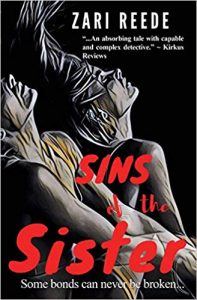Are there problems with “evergreen books”?
First, a definition: An “evergreen book” is one that is as fresh and current as the day the author published it, or even more so. 1984 is a good example. Okay, a historical event might not be current as far as plot goes, but the themes in a historical fiction can be. “…the day the author published it…” means the copyright date of the first edition. For example, my very first book, the sci-fi thriller Full Medical , was first published in 2006, but it now has a second edition. Both versions are evergreen. Many books you’ll see on my web page “Steve’s Bookshelf” are early books or unique books from authors’ oeuvres, books that are evergreen.
Maybe critics consider evergreen books to be inferior in an author’s oeuvre because of the assumption that an author improves with each book. Harper Lee’s To Kill a Mockingbird belies that assumption (her other book was a late prequel), and my Full Medical is as good as later books with its cloning theme all the more important today. Critics pontificate a lot because they can’t write fiction.
The only problem with evergreen is age discrimination. For example, it’s now 2020, so any book with a 2019 copyright or older is considered old by readers, reviewers, and marketing services. People discriminate against “old,” and they’ve defined “old” to include evergreen. Some books are old—sci-fi from the early twentieth century with bug-eyed Venusians invading Earth is old, but these books can also evergreen because their themes can be current even if their tech isn’t.
You might think that if a book has an ebook version, it’s evergreen. After all, ebooks are a recent phenomena in the publishing world. That’s not a hard and fast rule, though. Even the Big Five “reprints” old books, including many “classics,” as ebooks, and some of them, like Jane Austen’s drivel, are hardly evergreen. As SOP, a reader can only tell a book is evergreen by its blurb and using a “peek inside.” (I suppose, in that sense, no cozy mystery is evergreen, because I never find fresh or current themes in those books. I can just hear the screams!)
Second, age discrimination means, in particular, that readers don’t normally buy evergreen books. I don’t know about other authors, but that kills my business model. I set out on my publishing journey with the assumption that I could finance the next book using the royalties from my previous books. That does not work for me, and it probably doesn’t work for many other authors either. I guess everything has to be new and shiny bright for today’s readers?
Whether self- or traditionally published, there are costs, many of them the same. One big one is the author’s website. Another is editing. Finally, there’s marketing. All necessities. There are incidental, smaller costs as well, too many to enumerate. Per book, they don’t have to add up to much unless you OD on marketing (marketing “experts” love us to do that!). If this business model makes any sense at all, I should be well off. It doesn’t, though, because no one pays attention to evergreen books.
I guess I’m an exception. I’m an avid reader, and I find a lot of worthwhile reading in evergreen books. I recognize that I can’t read that many books per year (I average between 50 and 100), so chances are, by the time I “discover” a book, it’s already evergreen! (There are hundreds of books published every week, just in case you didn’t know.) I read evergreen, but others don’t.
Readers who don’t read evergreen don’t know what they’re missing…including my own books. But that’s life in the writing trenches.
***

Comments are always welcome.
Zari Reede’s Sins of the Sister. Now evergreen (published in December, 2018), but a damn good book! Talk about current themes. Part mystery, part thriller, this story about a detective and her sister will keep you guessing. It moves at a fast pace, so hold on to your recliner. I won’t say much more for fear of spoilers, but this is a great example of what readers might miss if they don’t do evergreen. Available at Amazon.
Around the world and to the stars! In libris libertas!
